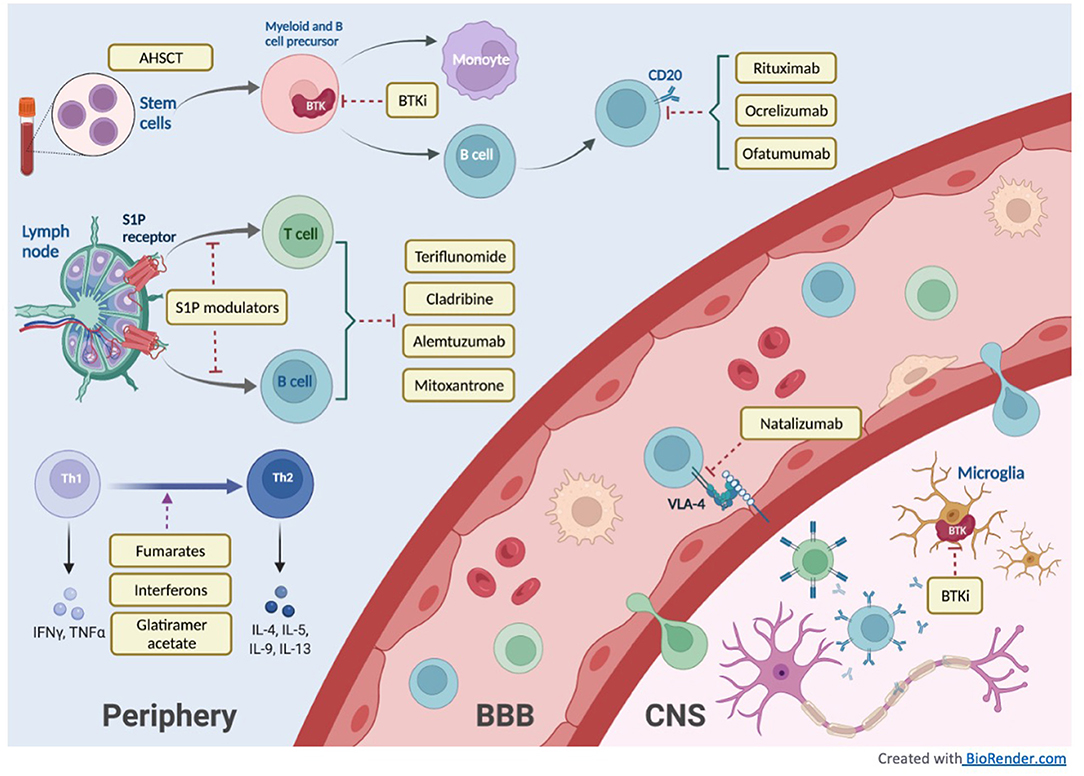Multiple Sclerosis Treatment
Multiple Sclerosis (MS) is a chronic neurological disease that affects the central nervous system, causing a wide range of symptoms including muscle weakness, fatigue, difficulty walking, and problems with coordination and balance. MS occurs when the body's immune system mistakenly attacks the protective sheath (myelin) that covers nerve fibers, leading to inflammation and damage.
Treatment for MS typically focuses on managing symptoms, slowing disease progression, and improving the quality of life. While there is no cure for MS, advancements in treatment have significantly improved outcomes for many patients.
Who Should Consider Multiple Sclerosis Treatment?
Treatment for Multiple Sclerosis (MS) is typically recommended for individuals who have been diagnosed with the condition and are experiencing one or more of the following symptoms:
- Unexplained Fatigue: Individuals with MS often experience persistent, overwhelming fatigue that is not related to physical activity or sleep patterns, affecting their ability to perform daily tasks and reducing overall quality of life.
- Difficulty Walking or Maintaining Balance: MS can cause weakness in the muscles and coordination problems, making walking difficult. People may experience a staggering or unsteady gait, increasing the risk of falls.
- Muscle Weakness: MS can lead to reduced strength and power in certain muscle groups, which may result in difficulty performing basic tasks such as standing up, lifting objects, or climbing stairs.
- Visual Disturbances: MS can cause blurred vision, double vision, or even temporary blindness in one eye, due to the damage to the optic nerve. These issues may fluctuate or worsen over time.
- Coordination Problems: MS affects the brain and spinal cord, leading to problems with coordination and fine motor skills. Patients may experience difficulty in tasks that require precision, such as writing or buttoning a shirt.
- Cognitive Impairment: MS can affect cognitive functions such as memory, concentration, and problem-solving. This might manifest as difficulty focusing, forgetting recent information, or finding it challenging to plan and execute tasks.
- Numbness or Tingling Sensations in Limbs: MS often causes abnormal sensations in the body, such as numbness, tingling, or a "pins and needles" feeling in the arms, legs, or face. This can affect movement and sensation, leading to discomfort or difficulty with daily activities.
Treatment Goals
The primary goal of MS treatment is to manage symptoms, control relapses, and slow the disease's progression. The treatment may include:
- Symptom Management: A variety of medications and therapies may be used to alleviate symptoms, such as fatigue, muscle spasms, and pain, to help improve quality of life.
- Relapse Management: MS treatment focuses on reducing the frequency and severity of relapses (also known as flare-ups), often with the use of disease-modifying therapies (DMTs) that help manage the immune system response.
- Slowing Disease Progression: Disease-modifying treatments aim to slow the progression of MS, reduce brain lesions, and preserve neurological function. This is crucial in helping patients maintain independence and function over time.
Symptoms of Multiple Sclerosis
The symptoms of MS can vary widely depending on the location and severity of the nerve damage. Common symptoms include:
- Fatigue: A common and disabling symptom of MS, often worsening during the evening.
- Muscle Weakness: A result of nerve damage, leading to difficulty in movement.
- Balance and Coordination Issues: Difficulty walking, feeling unsteady, or experiencing vertigo.
- Vision Problems: Blurred vision, double vision, or vision loss, often due to optic neuritis.
- Cognitive Impairment: Difficulty with concentration, memory, and processing information.
- Numbness or Tingling: Often in the limbs or face.
- Speech Issues: Difficulty speaking clearly or swallowing.
- Pain: Nerve pain or musculoskeletal pain can occur in some individuals.
Causes of Multiple Sclerosis
The exact cause of MS remains unclear, but it is thought to result from a combination of genetic and environmental factors:
- Autoimmune Response: MS is considered an autoimmune disorder, where the body's immune system mistakenly attacks the myelin, leading to nerve damage.
- Genetics: Certain genetic factors may make individuals more prone to developing MS, though it is not inherited directly.
- Environmental Factors: Factors like viral infections (e.g., Epstein-Barr virus), low vitamin D levels, and smoking may contribute to an increased risk.
- Geographic Location: MS is more common in countries further from the equator, where sunlight exposure and vitamin D levels are lower.
- Gender and Age: MS is more common in women and typically affects individuals between the ages of 20 and 40.
Key Benefits of Multiple Sclerosis Treatment
- Slowing Disease Progression: Treatment can help slow the progression of MS, particularly with disease-modifying therapies (DMTs).
- Symptom Management: Medications and therapies can help manage symptoms, improving the quality of life.
- Reduced Relapse Frequency: Many patients experience fewer relapses and prolonged periods of remission with appropriate treatment.
- Improved Mobility: Rehabilitation, physical therapy, and medications can help maintain or improve mobility.
- Minimized Disability: Early and effective treatment can reduce long-term disability associated with MS.
Multiple Sclerosis Treatment Process
MS treatment involves a combination of approaches, depending on the type and stage of the disease. These treatments typically include:
- Disease-Modifying Therapies (DMTs): Medications aimed at reducing the frequency and severity of relapses, slowing disease progression, and modifying the immune response.
- Symptom Management: Medications and therapies to manage symptoms like fatigue, muscle spasticity, pain, and depression.
- Physical and Occupational Therapy: A key part of MS treatment to help improve mobility, strengthen muscles, and improve daily functioning.
- Plasma Exchange (Plasmapheresis): For some patients, this procedure is used to treat severe relapses when other treatments don’t work.
- Cognitive Rehabilitation: Techniques and therapies designed to improve cognitive function for patients experiencing memory or concentration difficulties.
Step-by-Step Process for Multiple Sclerosis Treatment
- Initial Consultation & Diagnosis:
The process begins with an in-depth consultation with a neurologist, who will review your medical history, conduct neurological tests, and order imaging studies (such as MRI) to confirm the diagnosis of MS.
- Pre-Treatment Preparation:
Depending on the treatment plan, patients may need blood tests, screenings, and a comprehensive assessment to ensure suitability for specific medications or therapies.
- Disease-Modifying Therapy (DMT) Initiation:
The neurologist will recommend appropriate DMTs based on the type of MS. DMTs are administered through injections, oral medications, or infusions.
- Symptom Management and Rehabilitation:
Physical therapy, pain management, and medications to control symptoms will be initiated as part of a comprehensive care plan.
- Ongoing Monitoring & Adjustments:
Regular follow-up appointments will ensure that the treatment is effective and that any symptoms or side effects are managed. Medication doses may be adjusted based on individual needs.
Why Choose Healtour Solutions for Multiple Sclerosis Treatment?
- World-Class Medical Facilities: We connect you with leading hospitals in India that specialize in treating neurological disorders like MS.
- Experienced Specialists: Our network includes top neurologists and MS specialists with years of expertise in managing MS.
- Affordable & High-Quality Treatment: MS treatments in India are offered at a fraction of the cost compared to Western countries, without compromising on quality.
- Comprehensive Support: From diagnosis to post-treatment care, we provide a seamless and supportive experience for patients.
- Personalized Care: We tailor treatment plans to the specific needs and stage of the patient's MS condition, ensuring optimal outcomes.
10 Frequently Asked Questions (FAQs)
- What is Multiple Sclerosis (MS)?
MS is a chronic autoimmune disease that affects the central nervous system, causing symptoms such as muscle weakness, vision problems, and coordination difficulties.
- How is MS diagnosed?
Diagnosis is typically confirmed through neurological exams, medical history review, and imaging studies (MRI).
- What treatment options are available for MS?
Treatment includes disease-modifying therapies (DMTs), symptom management, physical therapy, and in some cases, plasma exchange for severe relapses.
- Can MS be cured?
There is currently no cure for MS, but treatments can help manage symptoms, slow progression, and improve quality of life.
- How effective are MS treatments?
MS treatments are highly effective in reducing the frequency of relapses and slowing disease progression, but results vary from patient to patient.
- Is MS treatment covered by insurance?
Most health insurance policies cover MS treatment, but it’s important to check with your provider for specific details.
- How long does it take to see results from MS treatment?
The time to see improvements varies; disease-modifying therapies may take several months to show noticeable effects.
- Is there a risk of side effects with MS medications?
Like all medications, MS treatments can have side effects, but these are often manageable.
- Can lifestyle changes help manage MS?
Regular exercise, a balanced diet, and stress management are important for overall health and can help manage MS symptoms. - How do I get started with MS treatment through Healtour Solutions?
Contact Healtour Solutions today to schedule a consultation with leading MS specialists and begin your treatment journey.




